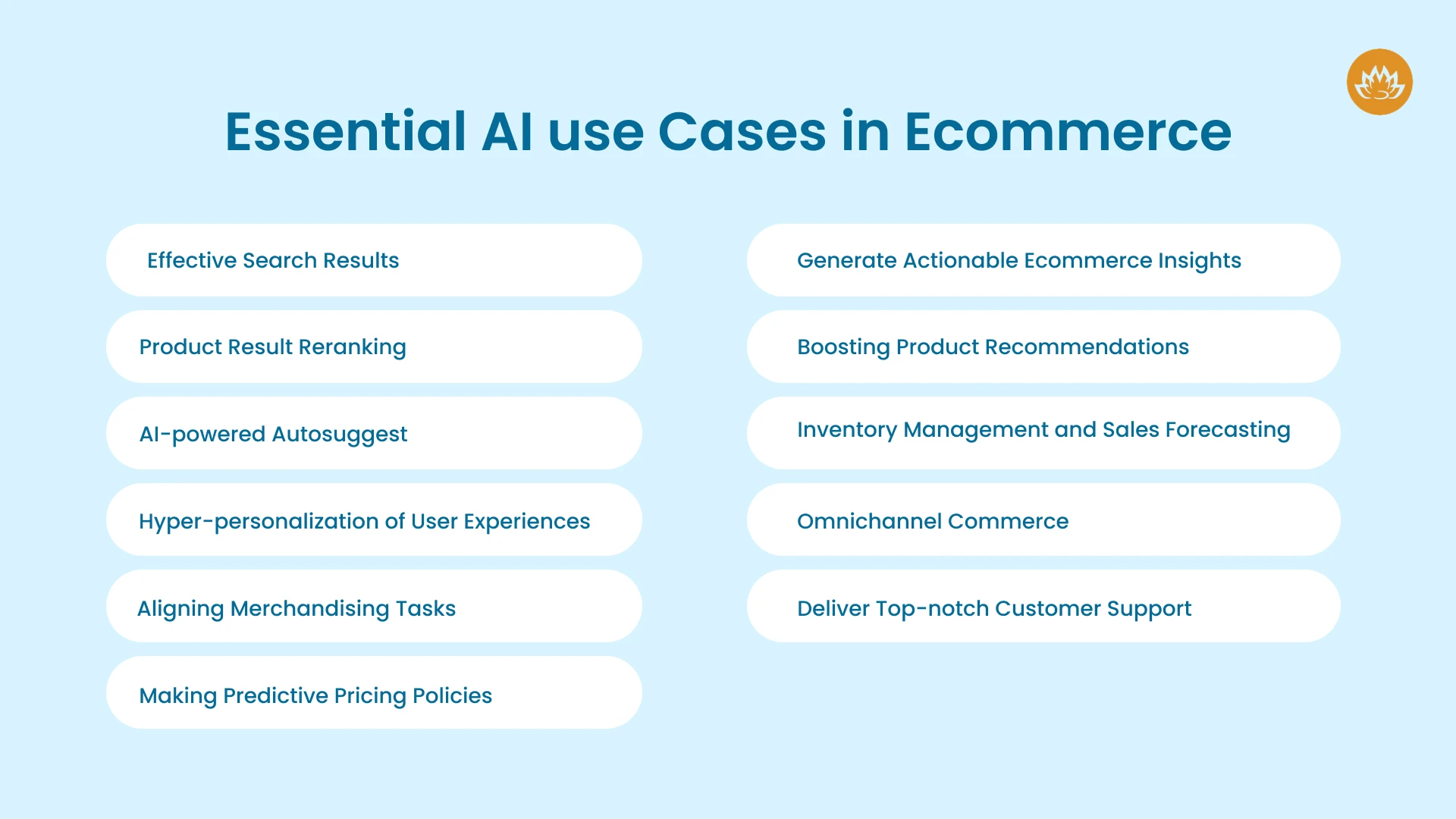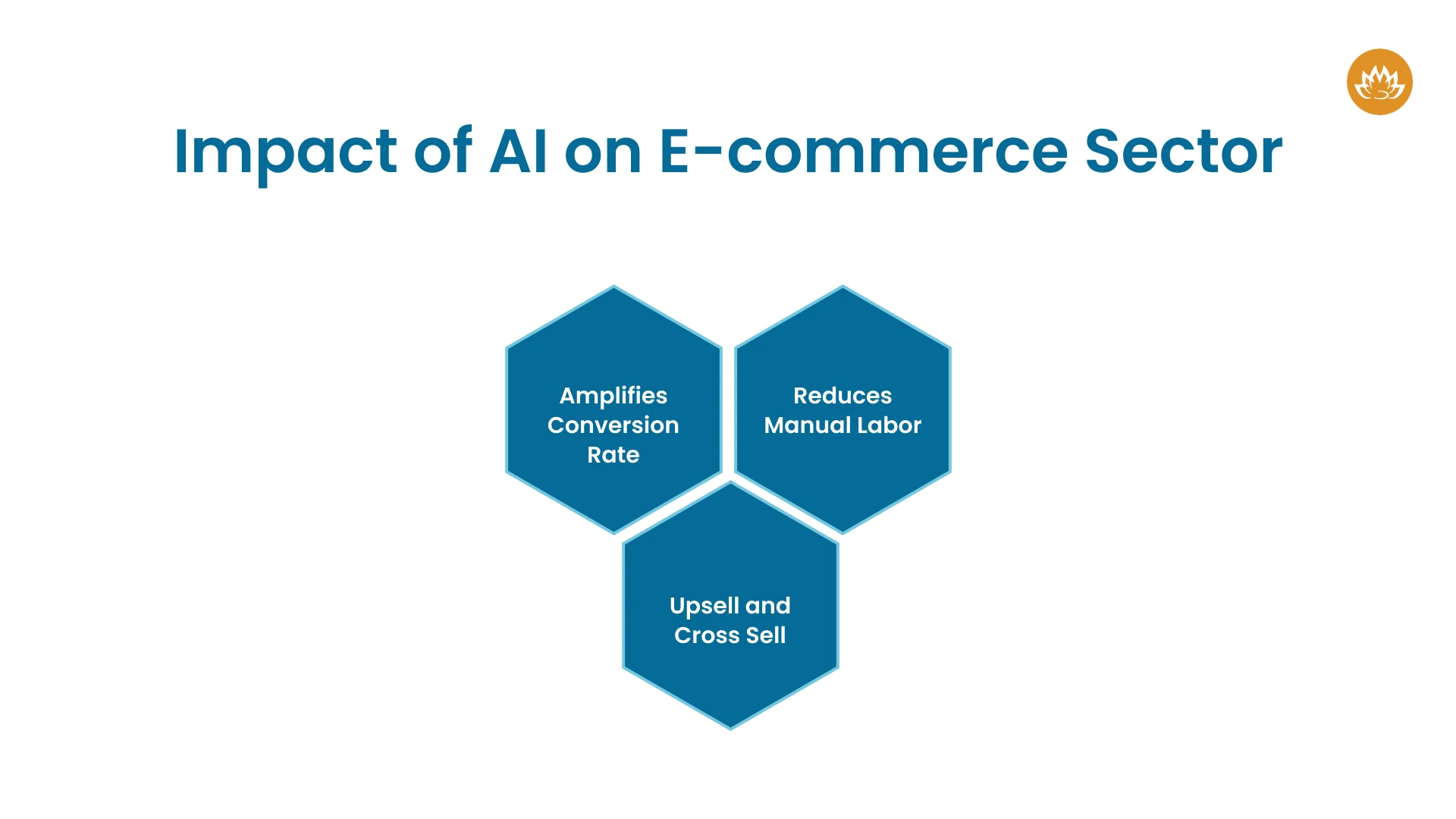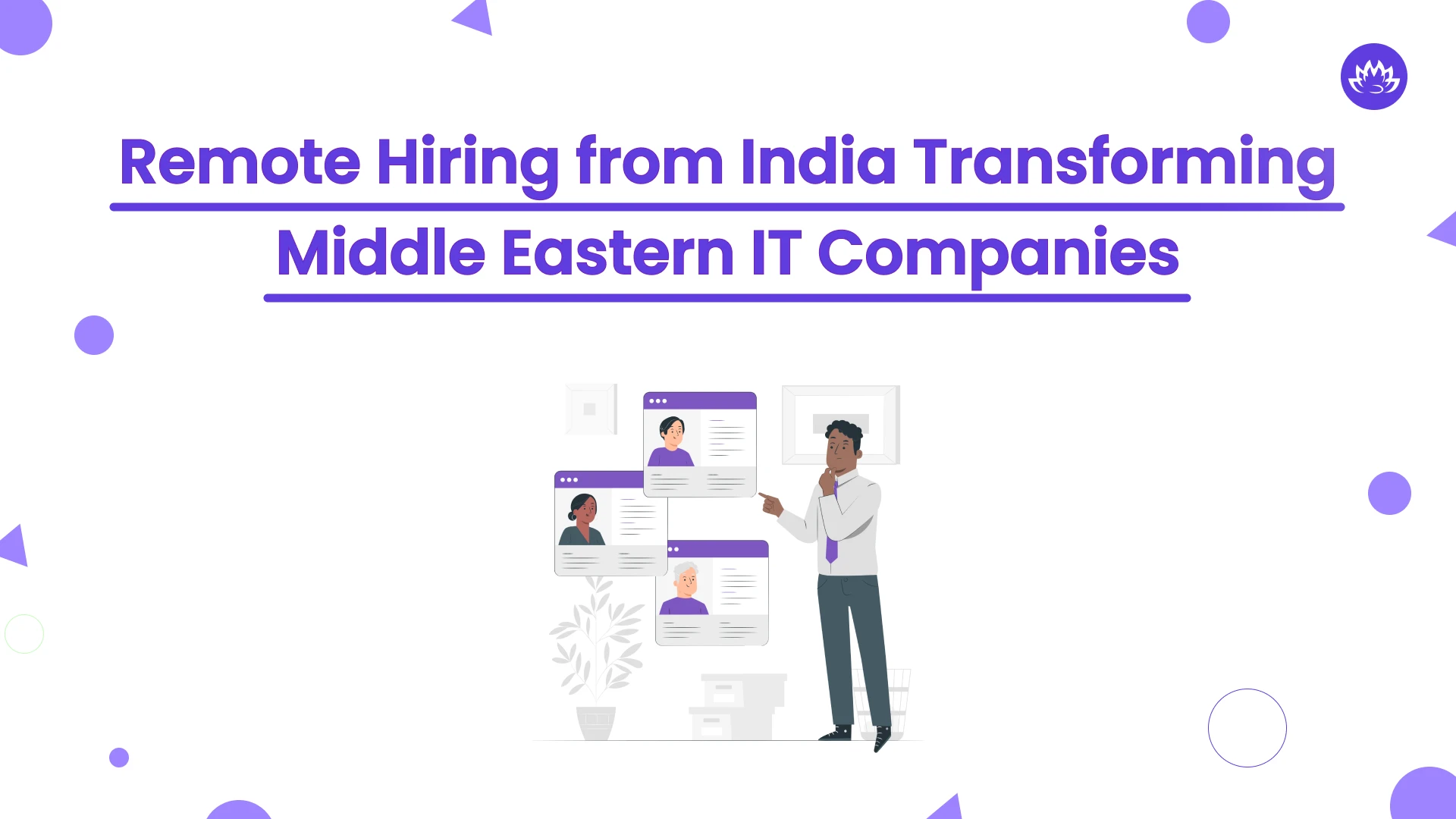AI—is now gradually taking the reins of the world. It’s found everywhere in different forms. Significantly, the ecommerce sector is making the most out of the AI benefits. Companies like Alibaba and Amazon use AI to create chatbots, product recommendations, and data management. A recent report found 40% of consumers use chatbots to find offers and deals.
Ecommerce startups harness AI solutions to improve user experiences and streamline operations. They collaborate with an experienced ecommerce development company to build enhanced AI solutions. So if you want your ecommerce website or mobile app to work efficiently, this blog will help you understand different ways in which you can harness the AI benefits.
So let us understand.
Top AI Use Cases in eCommerce Every Business Must Understand.

Effective Search Results
AI has changed the way consumers search for products and services. With the power of AI tools, they can discover products, explore more about them, and then make informed decisions. Advanced apps like Google Lens enhance and optimize users’ shopping experiences. AI algorithms prefer user behavior, past searches, choices, and page visit frequencies to create marketing strategies. Adobe research found a 14% increase in conversion rates after adopting AI-powered search engines.
Product Result Reranking
AI algorithms are used to check actions and customer responses. Also, product rankings are improved with constant content enhancement. Amazon widely uses AI technologies to modify product rankings after considering several aspects, such as relevance and customer feedback.
AI-powered Autosuggest
With artificial intelligence development services, companies can autosuggest functionalities to enhance the overall user experience. They use advanced features such as predictive analytics to anticipate search queries, make product recommendations in real time, and more. AI-enabled autosuggest is also used to encourage users to improve sales and explore more options.
Hyper-personalization of User Experiences
Providing hyper-personalized user experiences is nowadays one of the most effective ways to increase sales. AI personalization engines enhance shopping experiences through data analysis. They help users find relevant products through product recommendations, promotions, and customized content based on search results.
Aligning Merchandising Tasks
AI plays a crucial role for online shopping as well. It offers automated solutions to streamline merchandising tasks such as tagging, product categorization, and pricing optimization. Companies like Walmart and Amazon effectively use AI for such tasks. AI integration in this manner has empowered ecommerce phenomenally. It has optimized big brands’s approach towards providing enhanced user experiences in tune with sustainable growth.
Making Predictive Pricing Policies
With AI-driven pricing strategies, companies can enhance and optimize product pricing through real-time data. They can adjust their product prices based on factors such as product demand, historical data, and competition. This helps maximize revenues and align market conditions and customer preferences. Companies can make informed decisions, leading to better profitability and competitive advantage.
Generate Actionable Ecommerce Insights
Companies can get valuable insights through AI-driven analytic tools to make informed business decisions. These tools help businesses find out emerging trends, track customer choices and preferences, and unveil future market opportunities. AI capabilities are put to the best use for analysing data reserves and understanding operations.
Boosting Product Recommendations
AI-powered recommendations in eCommerce have become crucial to forming the best business strategies. For example, Amazon uses the best recommendation engines to create an effective business strategy that caters to the development of the entire company revenue stream. They use advanced algorithms to examine and interpret user behavior patterns.
Inventory Management and Sales Forecasting
AI algorithms are also used to predict demand and optimize inventory management. It can address and control overstocking and understocking issues. As a result, there are lesser costs and more customer satisfaction.
Omnichannel Commerce
AI in omnichannel commerce is the best for seamless data integration through sales channels. Small and big enterprises can now provide personalized experiences to the users across the web, social media, and mobiel apps. Even at the physical stores, AI bridges the gap of online-offline by providing in-store customers with personalized recommendations.
Deliver Top-notch Customer Support
Ecommerce is getting a boost by providing personalized customer services through AI-enabled tools. It connects users at multiple touchpoints and analyses customer interactions across various omnichannels. Data automation for addressing customer service queries is now possible. Even virtual assistance is backed by AI algorithms, and AI bots to address various product-related issues.
Benefits of Artificial Intelligence in Ecommerce Business

To get the following benefits of artificial intelligence in your ecommerce business, you can hire dedicated developers from a reputed software development company.
Enhanced Customer Retention Rates
-
Ecommerce stores improve customer interaction, turning regular customers into potential customers.
-
Provides personalized recommendations for improved user interaction
-
With AI-enabled customer support services, they get real-time experiences
-
Simple checkout and personalized marketing improve customer engagement.
-
A deeper understanding of customer behavior and choices enables the creation of tailored strategies.
Targeted Marketing Campaigns
-
Providing personalization services through AI allows retailers to thrive in the market.
-
They can send hyper-personalized messages to customers through one-to-one conversations.
-
AI tracks users’ purchase history, browsing patterns, and demographics to create various customer segments and marketing strategies.
Streamlined Sales Operations
-
AI-based customer analytics facilitates the sales department's ability to proactively find customers' upcoming demands so that inventory can be optimized well in advance.
-
AI provides real-time insights into variations in customer demands so that they do not move without a purchase.
-
Data engineering services backed by data research and deep insights ensure data-backed sales operations.
Improved Employee Satisfaction and Productivity
-
Employees get rid of repetitive tasks such as monitoring transactions, document handling, managing customer interactions, and others
-
AI technologies take over mundane jobs that gets automated, enabling employees to contribute their working hours in delivering productive results.
Different Types of AI Technologies Used in Ecommerce

You can collaborate with a reputed software development company to harness the following AI technologies into your business and let it grow exponentially.
Machine Learning
Machine learning in AI helps self-learn data through AI algorithms. They do not need any sort of additional data. There are DL and LLM algorithms that helps ecommerce stores to understand customer interactions and sales trends. They also help automate logistics operations and improve inventory management.
Natural Language Processing
NLP considers data interpretation and generates handwritten text, helping create AI use cases in ecommerce. NLP technology has improved ecommerce brands by enhancing chatbot functioning and providing prompt answers to customer queries.
Data Mining
Ecommerce companies can now generate petabytes of data on a daily basis. They can collect and analyze data optimally. The actionable data enables a boost in business performance and better products and services. With data mining, e-commerce stores can discover data using AI algorithms to make product recommendations.
Computer Vision
AI-enabled computer vision technology facilitates in product searching. It uses images and helps search for products with similar features. Customers can capture a photo of the product they like and use it for rapidly searching on the ecommerce store.
Impact of AI on E-commerce Sector

Combats Online Fraud
AI can reduce the chances of fraud and save online retailers millions of losses. Through its intelligent algorithms, it allows millions of touchpoints to analyze and find suspicious activities.
Amplifies Conversion Rate
Abandoning shopping carts is the most significant loss for any ecommerce store. Hence, AI here helps bring back those customers by providing personalized messages after continuously collecting information about the customers who leave the store without buying any product. AI sends auto emails immediately and reminds them of the items added to the cart.
Reduces Manual Labor
AI reduces manual labor and takes over mundane tasks. AI bots, for example, are virtual retail associates who work even after business hours.
Upsell and Cross Sell
When user decides to check out, AI products product recommendations such as ‘frequently bought together’. AI intelligently adds these types of information to drive users to buy additional products that are connected to their cart items. Hence, AI does the job of cross-selling and up-selling.
Conclusion
The future of ecommerce app development trends is bright and shiny. Ecommerce startups and big giant companies are sure to evolve and improve in adopting AI technologies. AI will play a large role in shaping up their future identity. With the above information, we are sure you found the real power of AI in enhancing search capabilities and optimizing pricing strategies. When you embrace AI, you are strategically helping your business thrive in this competitive online marketplace. If you have an ecommerce startup idea and well prepared to sell unique solutions, we recommend adopting AI technologies at the very first instance. The above use cases will help you identify the areas where AI intervention becomes crucial. Because AI is here to stay and will keep growing, providing impeccable opportunities to different businesses worldwide.
Author
-

Sunil is a result-orientated Chief Technology Officer with over a decade of deep technical experience delivering solutions to startups, entrepreneurs, and enterprises across the globe. Have led large-scale projects in mobile and web applications using technologies such as React Native, Flutter, Laravel, MEAN and MERN stack development.
View all posts











